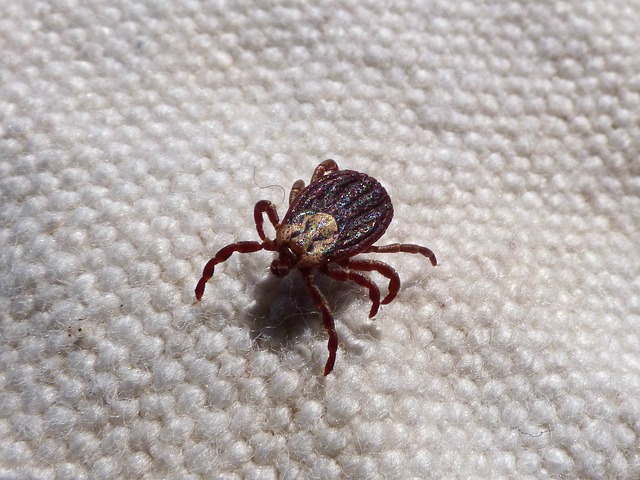Experts warn that it could be a particularly bad year for tick-borne diseases. A rare disease called Powassan, carried and transmitted by three types of ticks, is being reported in growing numbers in the northeastern states and Great Lakes region, the US Centers for Disease Control and Prevention states.
Powassan, which is carried by the same deer tick that gives humans Lyme disease, is potentially life-threatening. Over the past 10 years, there have been 75 reported cases, CNN reports. Warmer weather have led to an increase in ticks, so experts predict that more tick-borne diseases are bound to show up.
Dr. Jennifer Lyons, chief of the Division of Neurological Infections and Inflammatory Diseases at Brigham and Women’s Hospital in Boston, says everyone is susceptible to Powassan. Infections are most likely to occur in late spring, early summer and mid-fall, and anyone bitten by a tick can get the disease.
Lyons, also an assistant professor of neurology at Harvard Medical School, said,
About 15% of patients who are infected and have symptoms are not going survive. Of the survivors, at least 50% will have long-term neurological damage that is not going to resolve.
Most infected with Powassan never show symptoms, but those who do fall ill a few days to a week after being bitten. Headaches, fever and “flu-like” symptoms are the most common. This could develop into more serious conditions. “You start to develop difficulties with maintaining your consciousness and your cognition…You may develop seizures. You may develop inability to breathe on your own,” Lyons said.
There are no vaccines or treatments for Powassan. Lyons said, “There are some experimental therapies we try when somebody comes in and they get here early enough and we get the therapy started early enough, but we have no idea if any of that works.”
Treatments are often to address the symptoms, such as administering intravenous fluids, antiviral medications, systemic corticosteroids, and other drugs.
The best thing to do is to prevent against all tick bites, experts cautioned. Dr. Daniel Pastula, an assistant professor of neurology, medicine (infectious diseases) and epidemiology at University of Colorado Denver and Colorado School of Public Health, said to avoid brushy areas, wear long pants and sleeves, use insect repellant and check for tick bites after spending time outdoors.
He said, “Essentially, you don’t need to worry about Powassan if you don’t get bit by a tick.”
























